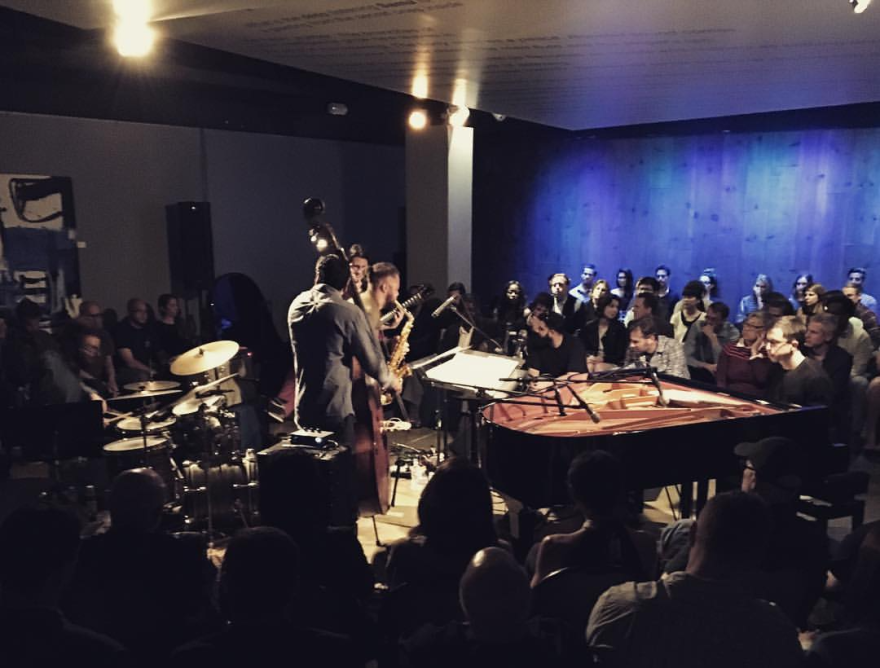Another small but glowing constant for jazz over the last decade has quietly been extinguished.
The Blue Whale, a 100-capacity performance space in the Little Tokyo district of Los Angeles, announced on Wednesday that it was closing permanently. Like many other bars and nightspots across the country, it had been dark since mid-March, due to restrictions caused by the coronavirus pandemic.
By shutting down, The Blue Whale joins a growing tally of independent music venues that have fallen victim to the pandemic economy in 2020; an east coast counterpart, Jazz Standard, made a similar announcement earlier this month.
This recent wave of closures recalls some grim projections made in the summer by the National Independent Venue Association (NIVA), an advocacy group that took aim at the lack of government funding for their industry.
But statistics can’t begin to describe the importance of The Blue Whale to the jazz ecology, in Los Angeles and beyond. On social media, testimonials have flowed freely from musicians and fans, along with expressions of sorrow. Guitarist Anthony Wilson, who held a longtime residency at the club, voiced his praise for its “flowering of music & fellowship,” adding: “I couldn’t imagine the last 11 years without you, & the next 11 looms dark & uncertain with this acknowledgement of your absence.”

The Blue Whale didn’t start out as an obvious success story, or with any sort of fanfare. Joon Lee, a first-generation Korean immigrant pursuing a career as a jazz singer, opened the space with a big leap of faith — in a former karaoke bar, within a strip mall. “The only really attractive thing about it was that the elevator was really close,” he told Alex Rodriguez, for a 2012 article on NPR’s A Blog Supreme. “That way, the musicians can bring their gear.”
Partly because there were few other venues in the Los Angeles area, and partly because of the sense of community that Joon Lee fostered there, The Blue Whale quickly became a local gathering place, and a fixture in the network of jazz venues across the country. Along with L.A. artists like Wilson and members of the West Coast Get Down, it routinely welcomed groups from New York and beyond.
Here is a 2019 set by Miles Okazaki’s Trickster, which features Okazaki on guitar, Matt Mitchell on piano, Anthony Tidd on bass and Sean Rickman on drums.
The loss of The Blue Whale punches a hole in the jazz infrastructure of Los Angeles, which was already a patchwork. It’s another blow to the cultural life of a city and county laid low by the pandemic, and a clear setback for the expanding reach of improvised music among an enthusiastic younger audience.
“There’s so many young people who want to hear the music but can’t afford it,” Wilson told NPR in 2012. “But the lifeblood of the music is connected to people having access to it and wanting to be around it. There needs to be a place that you’re going to get really quality music but there’s a sense of community and people sharing, and I experienced all that stuff immediately when I first went [to the Blue Whale].”
Another prominent guitarist, Julian Lage, filmed his set at The Blue Whale in 2016, with Scott Colley on bass and Kenny Wollesen on drums. There can probably be no more fitting sendoff for the club than their version of the old tearjerker “I’ll Be Seeing You.”



